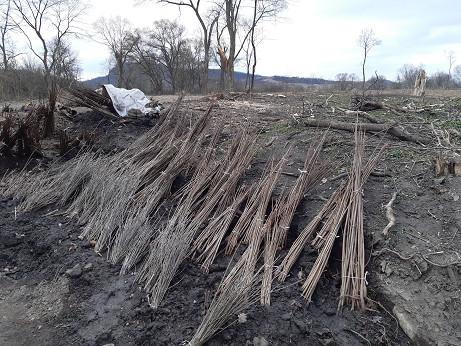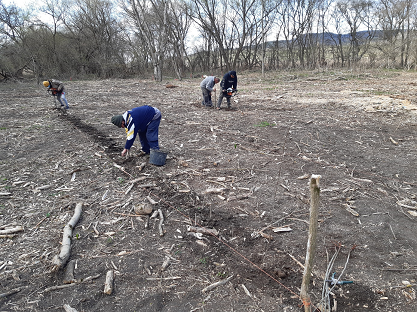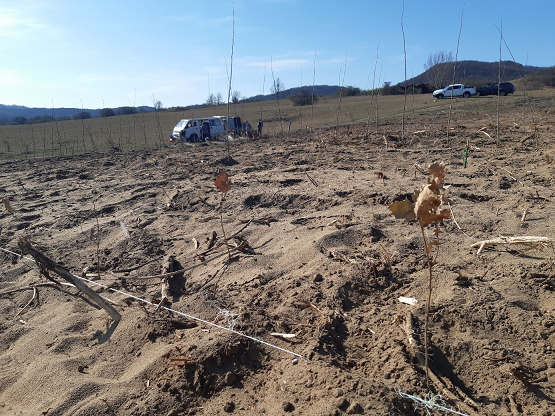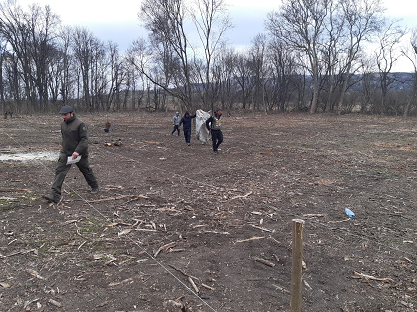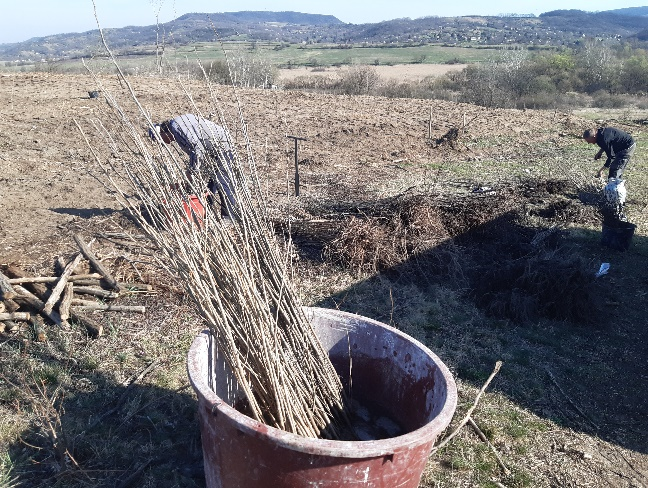In the spring of 2021, the Duna-Ipoly National Park Directorate planted 40,000 seedlings in the Esztergom project area where previously the invasive plant as well as explosive objects were eliminated.
Unlike tree plantations, native forest stands are home to a diversity of species and these are also much more resilient to climate change and extreme weather events. About 13 % of the 376 hectare project area in Esztergom was covered by invasive, alien plants such as the black locust, tree of heaven, oleaster, Common Hackberry, or honey-locust. These species decreases biodiversity through their aggressive expansion, and some of these produces growth inhibitors which prevent the formation of natural plant communities. So far 1958 m3 of invasive alien wood was extracted using chemical and mechanical treatments. The wood was sold mainly as firewood and to a lesser extent as columns. On 1.6 hectares, the explosive objects were also removed which left here from the former military activities.
Thus, in the spring of 2021, it became possible to prepare the soil and plant seedlings to create species-rich, native forests. In addition to sessile, turkey and pubescent oak, we planted different kinds of poplar, maple and ash trees as well as wild fruits such as crab apple, sour cherries and various rowan species.
DINPD will plant another 60,000 seedlings this fall. The planting will take several weeks by the contracted entrepreneur. According to our plans, we will regenerate the forest with a total of 22 types of tree species. In the long run, instead of the former degraded, species-poor areas, species-rich, native forest stands can develop.
Budapest, 2021. 04. 24. Péter Koncz
Photos: planting different kinds of seedlings with dibble and with portable drilling machine
